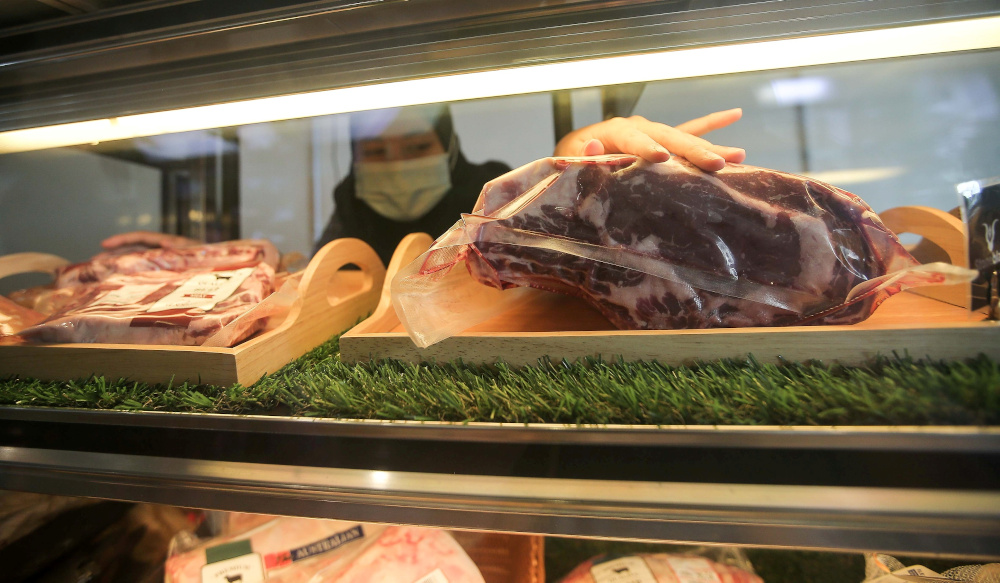KUALA LUMPUR, Jan 6 — Fewer people are buying red meat these days at Aeon, one of Malaysia’s biggest chain supermarkets following a scandal late last year that has cast doubt over the halal status of imported meats.
The Malaysian Insight reported Aeon Retail Malaysia chief human resource officer and corporate communications director Kasuma Satria saying that sales of red meat at its stores nationwide have fallen as much as 40 per cent since the expose of a “meat cartel”.
Kasuma cited the sales figures for the last week of 2020 compared with the first week of this year.
“Comparing figures for those weeks, despite the Christmas period, there was a drop in sales of red meat by 30 to 40 per cent,” he was quoted saying, adding that the change was stark at Aeon stores located in areas with a higher concentration of Malays compared to the minority Chinese and Indians.
He indicated that there was a notable shift among shoppers buying red meat as well.
“We now see people shifting their demand from imported meat to more local meat,” he told the news portal.
Kasuma added that Aeon has been importing meats based on its documentation that comes with the imported meat, but is now more cautious of the country of origin after the scandal broke.
These include Argentina, Brazil, Bolivia, China, Canada, Colombia, Spain, Ukraine and Mexico, which were not certified halal by the Malaysian Department of Islamic Development (Jakim).
However, Kasuma said the supermarket chain is reliant on government certification and endorsement for halal meats.
“In the long run, the government has to ensure stricter enforcement for imported meat if we are to rebuild consumer trust and confidence,” Kasuma was quoted as saying.
In the same report, Mydin Mohamed Holdings Berhad managing director Datuk Ameer Ali Mydin told the news portal that its supermarkets imports its meats directly from the suppliers who have Jakim certification.
However, Ameer, who is also president of the Bumiputera Retailers’ Organisation, said Putrajaya is not moving fast enough to investigate the matter, nor working hard enough to regain consumer confidence in existing stock of halal meat sold in the country.
“Malaysians deserve an answer and they deserve to know whether what they are eating now is halal or not.
“The government needs to assure the public that what we are consuming is halal. If the government can’t ensure that, then they have failed,” Ameer was quoted saying.
He said that apart from the reported raid on a warehouse in Senai, Johor last year, there has been little news of checks elsewhere to investigate the extent of the cartel’s network.
He said the government should conduct a large scale check of all retailers to find out if the meats sold were properly certified halal or not.
“They must do massive checks on all retailers and it doesn’t matter if they are big players, small players, pasar malam or even pasar pagi because this is where the meats are being sold.
“The government is not playing its part to help consumers regain confidence. They must act fast because the fasting month is approaching soon [in April] and after that, Hari Raya, when meat consumption will go up,” he was quoted saying.
Malay daily Sinar Harian first reported a large scale smuggling of frozen meat into the country from slaughterhouses that do not have the required Jakim halal certification by a syndicate late last year that was subsequently picked up by other news agencies.
According to media reports, this “cartel” would offer cash and sexual bribes to various government department officials to pass inspections of their meat imports, which would later be repackaged at a facility in Johor and sold as halal.
Last week, directors of frozen meat supplier Raihanah Cold Storage Sdn Bhd, allegedly linked to the so-called cartel, were charged with using a non-certified halal logo on the company truck.



















